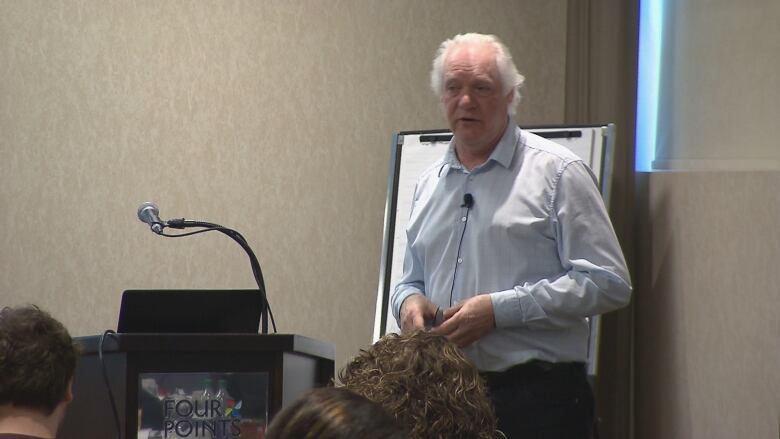New Brunswick medical community learns safe ways to prescribe opioids
Course of this type could become mandatory for medical professionals

With new national guidelines for prescribing opioidssome members of the New Brunswick medical community spent Saturday in Moncton learning safe and effective ways toprescribe opioid medications to patients.
"We recognized that many physciansand learners either haven't had, or aren't getting, adequate training in how to prescribe opioids in context of chronic pain," said Dr, John Fraser, a Nova Scotia doctor who developed the course with his colleague,Dr. PeterMacDougall.
The course was created toaddress thatgap "in the past, it wasn't on the radar" and is now part of the curriculum for all family medicine residents at Dalhousie University, Fraser said.
The course is not only intended for physicians. Pharmacists, nurse practitioners and dentists are also able to take it, he said.
"It's for anyone who is involved directly in either the prescribing or dispensing of opioids."
During Saturday's instruction,presented in both English and French for the first time, participants weregiven a case to discuss in small group sessionsbefore moving to a larger group discussion.
"We sort of outlined the process from beginning to end of how to use opioids. We follow one case for the day as the patient progresses through their opioid-prescribed course of treatment."
Handbook helps
A 90-page handbook provides more detail abouttheopioid-prescribing process as well as follow-up exercises.

Irregular behaviours could include overusing or asking for more opioids before it is time for a refill, he said.
There is discussion across Canada about making a course in opioid prescribing mandatory.
To date the course has been presented nearlytwo dozen times toabout 500 participants throughout Atlantic Canada, Fraser said.
"The way of teaching it is very effective because it is case based and people are engaged in discussing how to manage how the cases amongst themselves. It's a really effective way of teaching."
The aim of the course is tochange participants' behaviours.
"We've designed this course specifically to enhance the chances of that happening," Fraser said.












_(720p).jpg)


 OFFICIAL HD MUSIC VIDEO.jpg)
.jpg)



























































































